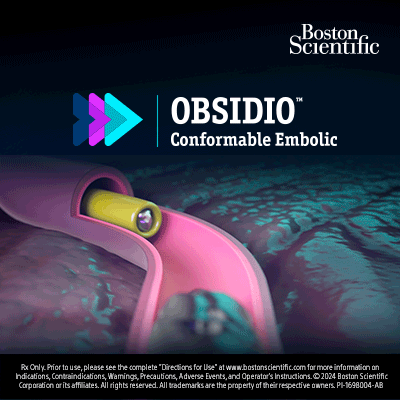SIR 2025
Interventional Oncology
Scientific Session
Yttrium-90 radioembolization with and without capecitabine for colorectal cancer liver metastases

Shin Mei Chan, MD
Resident Physician
University of California, San Francisco, United States- AV
Alan Venook, MD
Professor of Medicine
University of California San Francisco, United States - CA
Chloe Atreya, MD, PhD
Associate Professor of Medicine
University of California San Francisco, United States - WK
Wesley Kidder, MD, MPH
Associate Professor
Department of Medicine, Division of Hematology and Oncology, University of California, San Francisco, United States - SP
Sorbarikor Piawah, MD
Assistant Professor
Department of Medicine, Division of Hematology and Oncology, University of California, San Francisco, United States - KV
Katherine Van Loon, MD
Associate Professor of Medicine
University of California San Francisco, United States - AP
Alan Paciorek, PhD
Statistician
UCSF Helen Diller Family Comprehensive Cancer Center, United States - NF
Nicholas Fidelman, MD
Professor
University Of California San Francisco, United States
Presenting Author(s)
Author/Co-author(s)
Metastatic colorectal cancer (mCRC) treatment remains challenging, with a 5-year survival rate of about 14% {1}. Liver-directed therapy such as Yttrium-90 (Y90) radioembolization may improve progression-free survival (PFS) and overall survival (OS) for patients who progress on systemic therapy. Radiosensitizers, such as capecitabine, may enhance the effects of radioembolization, although data are limited. This study evaluated the effectiveness of radioembolization with capecitabine versus radioembolization alone for patients with mCRC to the liver in a tertiary academic center.
Materials and Methods:
This retrospective cohort study analyzed mCRC patients treated with Y90 radioembolization. Patients were divided into two groups: those receiving radioembolization with capecitabine and those treated with radioembolization alone. Pearson Chi-squared, Kruskal-Wallis tests, and Cox proportional hazards regression were used to compare patient characteristics, OS and PFS.
Results:
Seventy-six patients (50 men, 26 women) with mCRC who had progressed on at least two standard chemotherapy regimens were included. Sixty-four patients received radioembolization alone, while 12 received it with capecitabine. Forty-six patients were treated with resin embolization, while 29 received glass. Fifteen patients had extrahepatic disease (20%), and 22 patients had liver replacement by tumor > 75% (29%). Eastern Cooperative Group Performance Status (PS) was 0 or 1 for 75 patients (99%). Capecitabine alone did not significantly correlate with improved OS or PFS compared to those not receiving it (OS: 11.3 vs 6 months, p=0.25); PFS: 8.7 vs. 4.8 months, p=0.22). However, with adjustment for age, gender, extrahepatic involvement, liver replacement level, and PS, capecitabine showed a 69% reduction in the risk of death (aHR=0.31 95 % CI [0.11,0.89], p=0.03). PFS did not significantly differ in the adjusted model (aHR=0.56 95% CI [0.25,1.27], p=0.17)
Conclusion:
Considering demographics and metastatic burden, combining capecitabine with Y90 radioembolization may significantly improve overall survival.


.jpg)